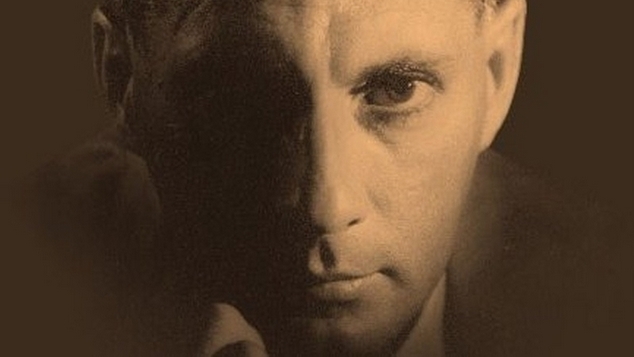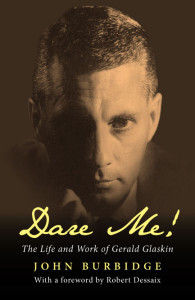 John Burbidge has found a compelling subject in his new biography ‘Dare Me! The Life and Work of Gerald Glaskin’.
John Burbidge has found a compelling subject in his new biography ‘Dare Me! The Life and Work of Gerald Glaskin’.
Glaskin lived much of his life in Perth, was a successful author, although popular recognition would elude him. More importantly, and to be worthy of a biography, Glaskin was a compellingly interesting character.
Glaskin was defiantly openly gay long before it was legally or socially acceptable to be so, and one of his early works ‘No End to the Way’ was a thinly veiled portrait of queer life in Perth in the mid-1960s. He published the book under the pseudonym Neville Jackson. The book was promptly banned, but the publishers found a loop hole in the law that allowed them to distribute the book in Australia. It was illegal for the book to be shipped in, so they chartered planes.
Glaskin wrote many novels during his life but found a much greater level of success overseas than he did in his home country. Rather than sticking to one specific genre Glaskin was constantly changing the style of his writing and wrote across genres, focussing on a wide variety of subjects. One of the reasons that mainstream success eluded him was probably because an admirer of one of his books would find something completely different if they selected another of his works.
At the recent launch of the book historian Graham Willet described the biography as a work of great importance and interest.
“It’s extensively and exhaustively researched,” said Willet, highlighting that biographer John Burbidge had taken thirteen years to research his subject travelling to many different countries to track down the authenticity of the many different stories about the author. Glaskin was well known for adding a little embellishment to a story to entertain his friends, giving Burbidge the challenge of sorting fact from fiction.
Rather than taking a purely linear approach to Glaskin’s life Burbidge takes us into the writer’s life through many different paths. We find out about the author’s family and ancestors – each with their own amazing tales which gives us an insight into Western Australia life not just during Glaskin’s lifetime but also from our colonial days onwards.
The biography cleverly captures two elements, the authors intriguing life and the work that he created. While Glaskin would not be proclaimed a great writer, although he did appear to have a great self-belief in his writing. The wide range of topics he covered in his works paints an effective portrait of the big issues that Australian society tackled in his lifetime. His books focussed on themes as diverse as homosexuality, Asia, youth suicide and the outback.
Alongside the author’s work the biography also captures the life of Glaskin. The author was born in Perth and grew up in Cottesloe, a suburb that he would constantly return to throughout his life. At a time when Perth was an extremely remote and conservative society Glaskin has several sojourns overseas to different cities and different cultures.
In his 20’s Glaskin lived in Singapore making a fortune as a stock broker. Later in life he spent time living in Amsterdam where he met his long-time partner Leo van de Pas. Undoubtedly the time Glaskin spent overseas had a major effect on his view of Western Australian society and its conservative attitudes.
Burbidge’s detailed biography is an intriguing read for anyone who wants to gain a good sense of what Western Australian life was like in many decades gone by, but also an insightful view into queer life in Perth prior to the decriminalisation of homosexuality. It is also a fascinating look into the processes and choices an artist makes in creating their work.
Biographer John Burbidge has had a long journey in creating this account of Glaskin’s life and work. The US based author shares that he stumbled across Glaskin’s work when he found a copy of the book ‘No End to the Way’. Intrigued that the book was about his own home city, Perth – Burbidge was eager to find out more about Neville Jackson and soon uncovered its author and the nineteen other books he wrote.
When Burbidge attempted to track Glaskin down on a trip home to Perth in 2000, he searched through the phone book and found the number for G.M Glaskin.
“I made a call on a Sunday morning and there was this strange Dutch accent on the other end of the line and he said to me ‘Well I’m sorry, but Gerry died six months ago,” explains Burbidge. The author spoke to Glaskin’s long-time partner Leo van de Pas who invited him over to chat about the late author.
“Five hours later I walked out of Leo’s apartment and my head was just spinning,” Burbidge said, “All these stories he had told me about this amazing man and his writing. I was left with the question of ‘What I was going to do about it?’”
Burbidge shares that he couldn’t leave it there he had to know what motivated Gerald Glaskin, “I needed to know more, I needed to know what made this man tick. A man who wrote a landmark gay novel in the 1960s.”
Burbidge’s commitment to researching his subject’s life is admirable. In talking to Glaskin’s relatives, friends, and professional colleagues he paints a detailed and enthralling portrait. Burbidge shows us that Gerald Glaskin could be inspiring, provocative, grouchy, meddlesome, caring and frustrated. His positive and negative qualities are given equal standing, but through it all this tribute to the author leaves us with admiration for his tenacity, creativity and perseverance to his craft.
 ‘Dare Me: The Life and Work of Gerald Glaskin’ by John Burbidge is available now through Monash University Publishing.
‘Dare Me: The Life and Work of Gerald Glaskin’ by John Burbidge is available now through Monash University Publishing.
Graeme Watson




